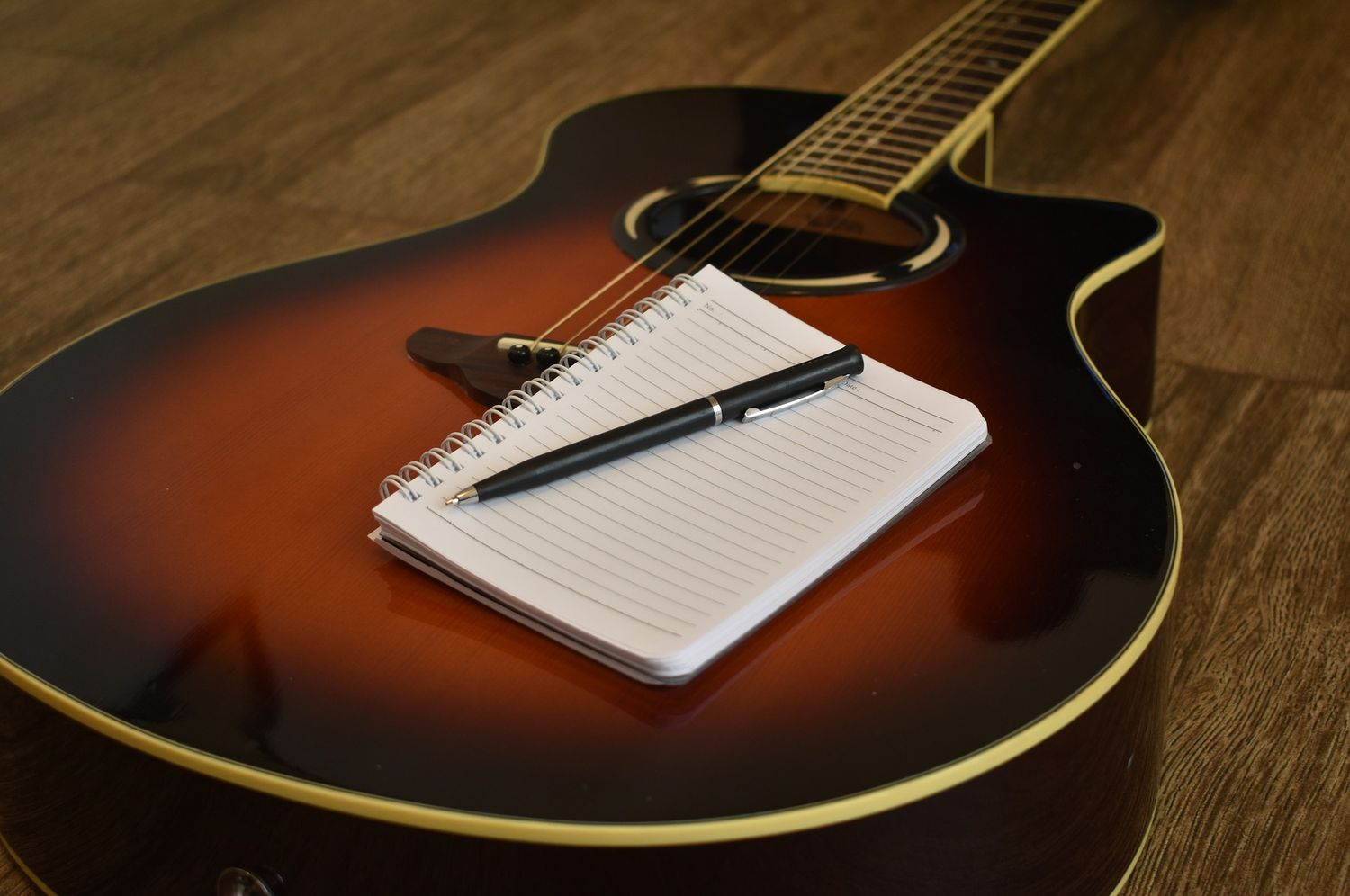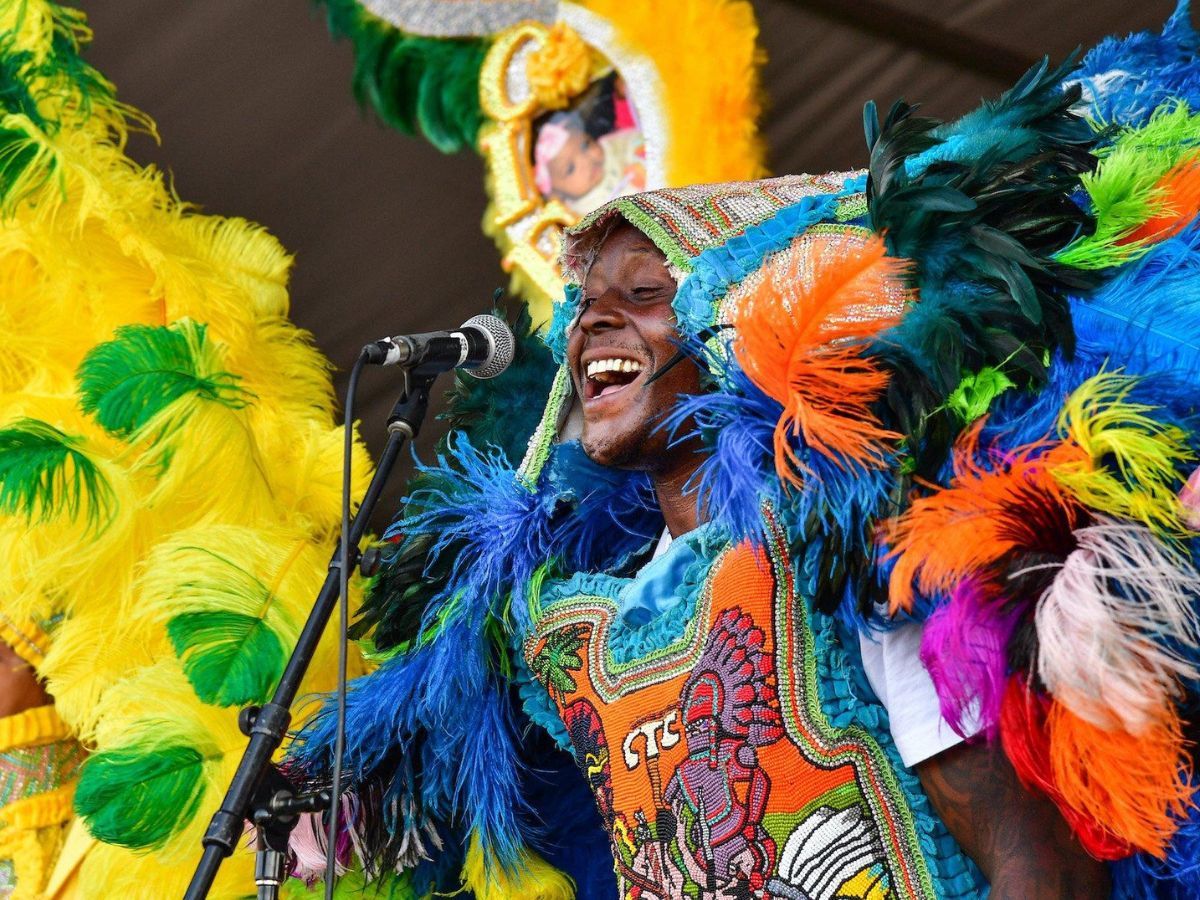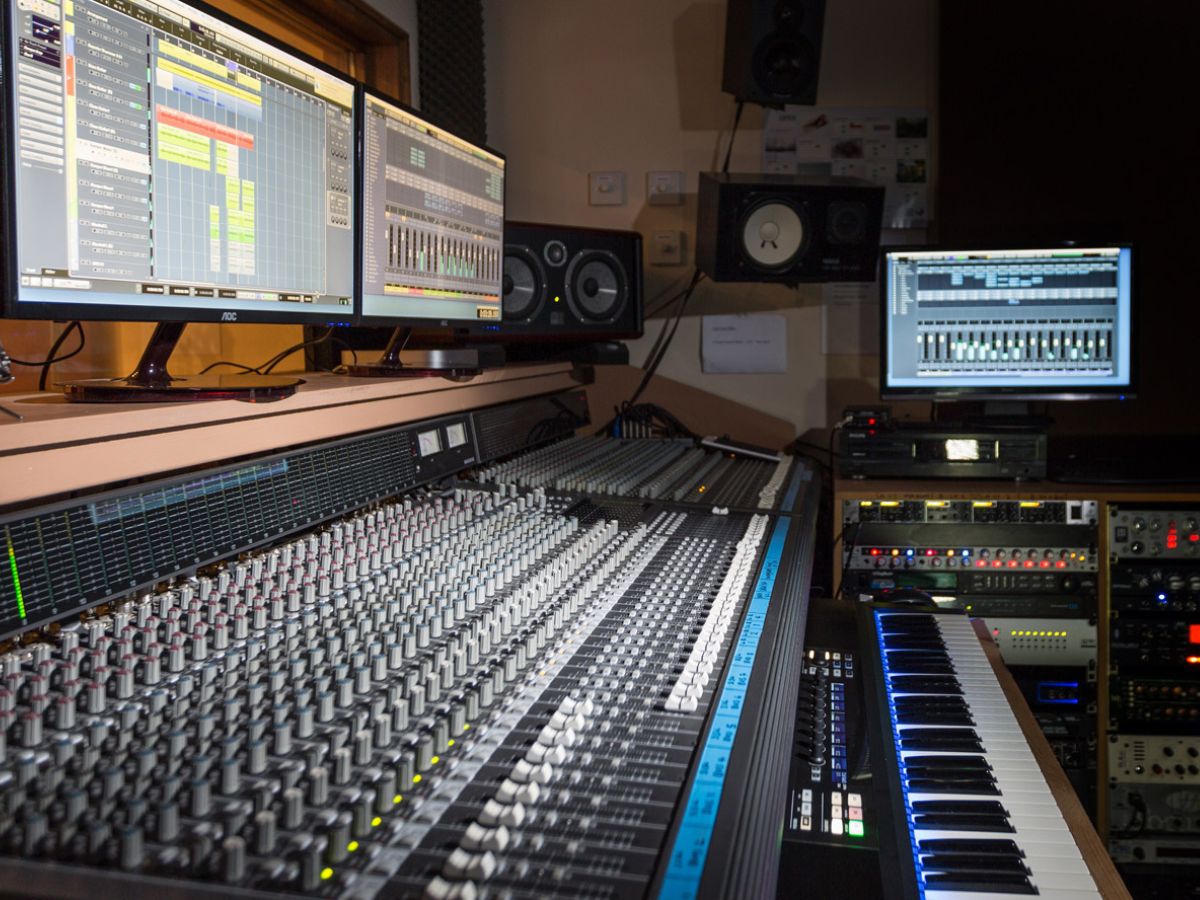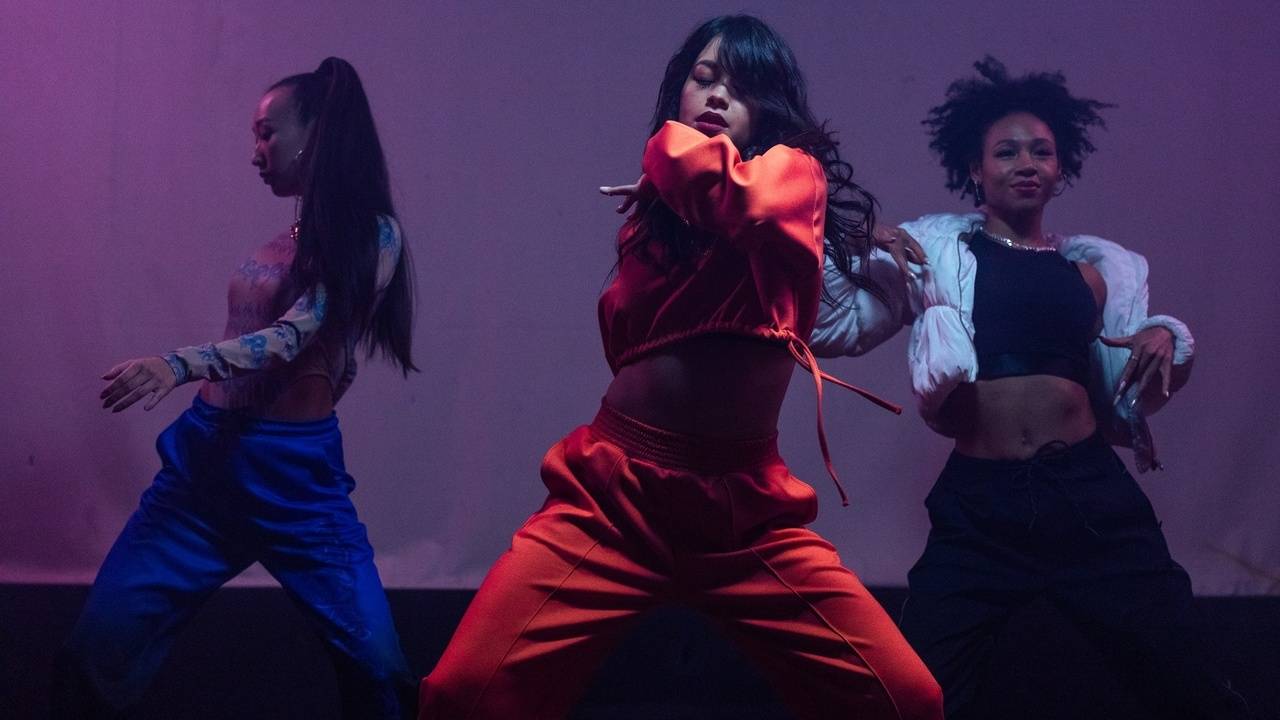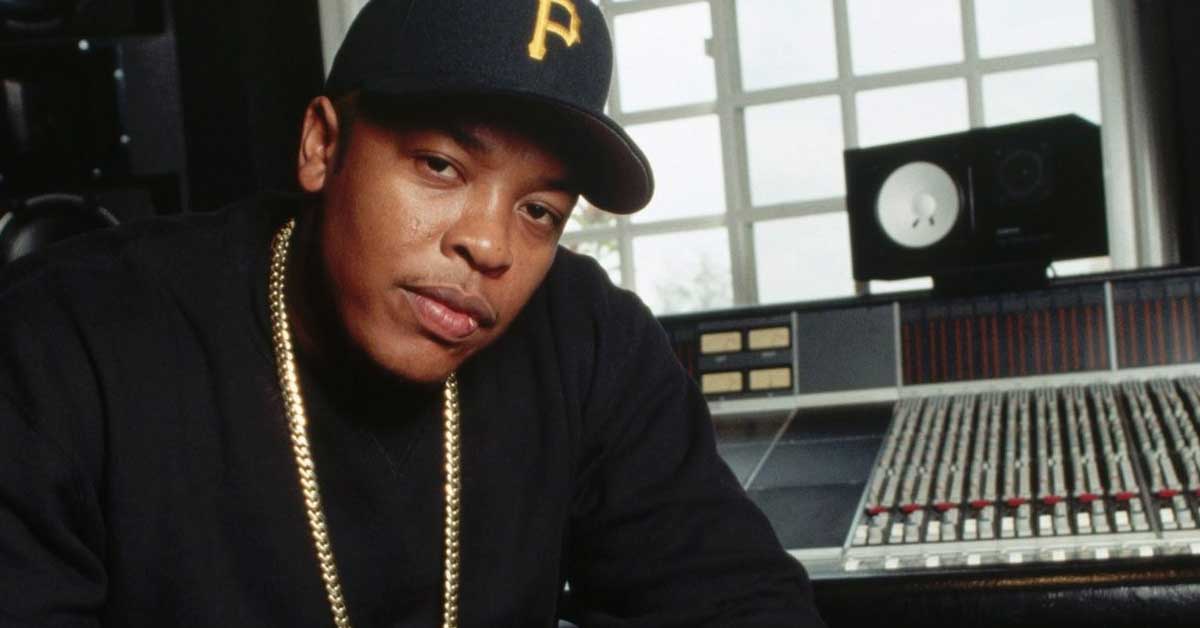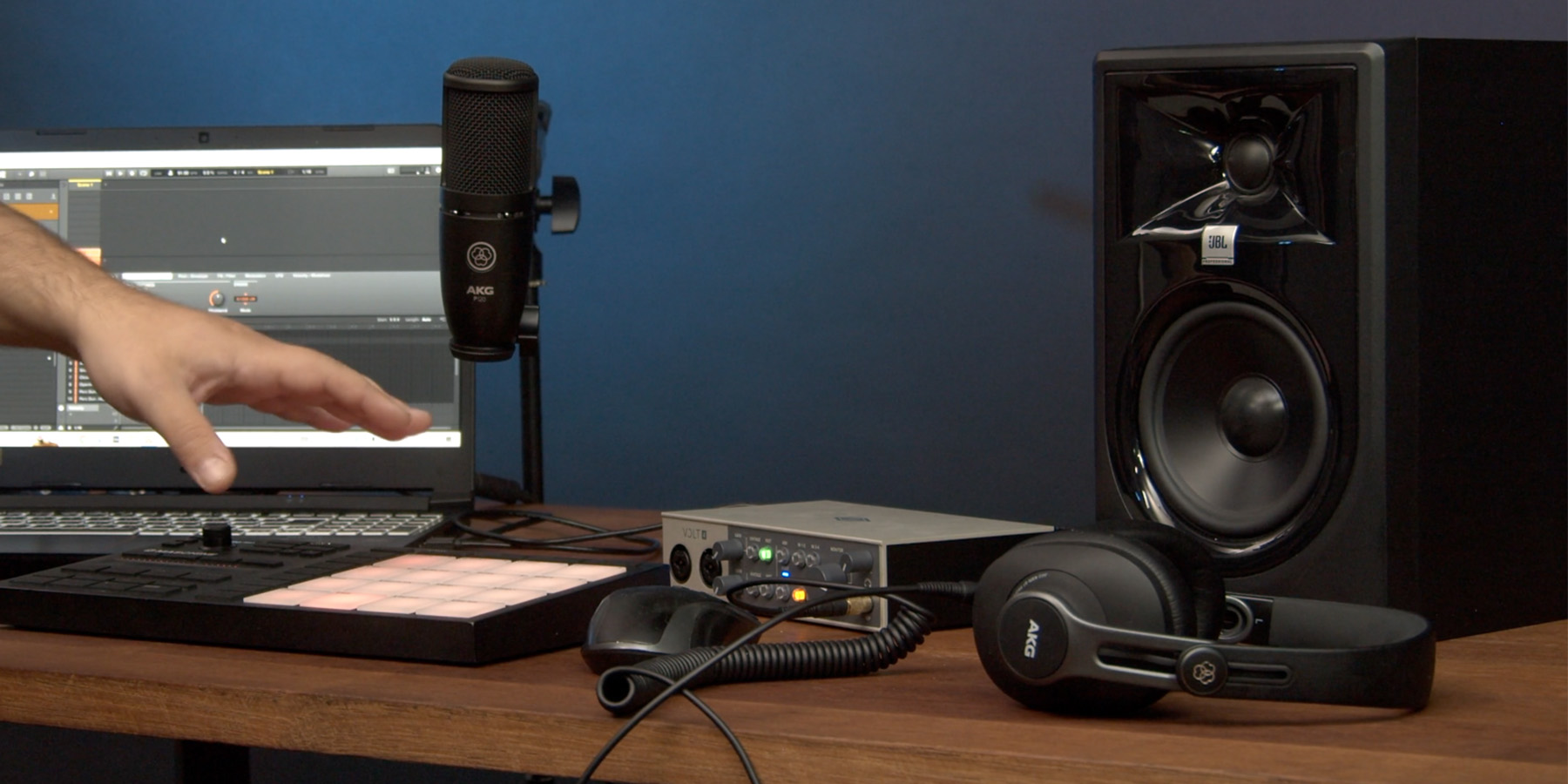

Hip Hop
How To Write A Hip Hop Song?
Modified: January 22, 2024
Learn the step-by-step process of writing a captivating hip hop song, from crafting lyrics to finding the perfect beats. Unleash your inner artist and create your own unique hip hop masterpiece.
(Many of the links in this article redirect to a specific reviewed product. Your purchase of these products through affiliate links helps to generate commission for AudioLover.com, at no extra cost. Learn more)
Table of Contents
Introduction
Welcome to the world of hip hop! With its infectious beats, clever wordplay, and unique storytelling, hip hop has become a global phenomenon and an influential cultural force. Whether you’re a seasoned lyricist looking to sharpen your skills or a newcomer eager to dive into the world of hip hop songwriting, this article will guide you through the process of crafting a compelling hip hop song.
Hip hop is more than just a genre of music; it’s a culture that encompasses elements such as dance, fashion, and visual arts. But at its core, hip hop is about self-expression and telling your story. It gives a voice to the marginalized, sheds light on social issues, and reflects the artist’s experiences and emotions.
Every hip hop song is a unique piece of art, and the process of creating one is deeply personal and inventive. Whether you want to write a hard-hitting political anthem or a light-hearted party banger, there are certain techniques and elements that can help you capture the essence of hip hop and make your song stand out.
In this article, we will delve into the fundamentals of hip hop songwriting, from finding inspiration to perfecting your flow and delivery. We’ll explore the importance of understanding the basics of hip hop, developing a theme, crafting catchy melodies, writing engaging lyrics, and structuring your song effectively. We’ll also discuss the crucial elements of rap verses and hooks, as well as the importance of editing, revising, and finally recording and producing your song.
So, put on your headphones, grab a pen and paper, and let’s embark on this creative journey together. Whether you’re an aspiring rapper or simply a fan of hip hop, this guide will equip you with the tools and knowledge to write your very own hip hop song.
Understanding the Basics of Hip Hop
Before diving into the art of hip hop songwriting, it’s essential to have a solid understanding of the fundamentals of this genre. Hip hop originated in the Bronx, New York City, in the 1970s as a cultural movement. It was a form of expression for African American and Latino communities, addressing social issues and reflecting their realities.
At its core, hip hop is composed of four main elements: rapping, DJing, breakdancing, and graffiti. Rapping, or MCing, is the vocal delivery of rhymes and lyrics over a rhythmic beat. It’s the lyrical backbone of hip hop and the focal point of the song. DJing involves manipulating beats and creating music using turntables and other equipment. Breakdancing showcases intricate and acrobatic dance moves, while graffiti is the visual art form associated with hip hop, often displayed on walls or other surfaces.
When it comes to hip hop songwriting, understanding the essence of rhythm and flow is crucial. Hip hop beats typically rely on a strong drum pattern and bassline, driving the energy of the song. The rhythmic flow of the lyrics should sync with the beat, creating a seamless and captivating experience for the listener.
Additionally, hip hop lyrics often address a wide range of topics, including social issues, personal experiences, and storytelling. It’s a platform for artists to express their thoughts, emotions, and perspectives. Substance and authenticity play a significant role in shaping the message and impact of a hip hop song.
To grasp the essence of hip hop, it’s essential to dive into the culture and listen to a wide variety of artists. Study the work of legendary pioneers like Grandmaster Flash, Run-D.M.C., Tupac Shakur, and Notorious B.I.G., as well as contemporary artists pushing the boundaries of the genre.
By immersing yourself in the rich history and culture of hip hop, you’ll gain a deeper appreciation for the art form and find inspiration for your own songwriting. Understanding the basic elements of hip hop and the unique characteristics that set it apart from other genres will serve as a foundation as you begin to write your own hip hop songs.
Finding Inspiration and Developing the Theme
Every great hip hop song starts with a solid concept or theme. Finding inspiration for your song can come from various sources, such as personal experiences, social issues, current events, or even just a catchy phrase or melody that sparks your creativity.
One way to unearth inspiration is by tapping into your own life. Reflect on your experiences, struggles, and triumphs. Consider the things that make you unique and the perspectives you have to offer. By infusing your genuine emotions and personal stories into your lyrics, you can create a deep connection with your audience.
Another approach is to delve into societal issues or current events that resonate with you. Hip hop has a rich history of addressing topics like poverty, racism, inequality, and systemic oppression. By shedding light on these issues through your song, you have the opportunity to create awareness and spark meaningful conversations.
When developing the theme of your song, it’s important to prioritize authenticity. Choose a subject that is meaningful to you and aligns with your values. Hip hop is about staying true to yourself and expressing your truth, so avoid crafting lyrics solely for commercial appeal.
Once you have your inspiration and theme in mind, start brainstorming ideas and collecting relevant information. Jot down phrases, words, or images that resonate with your chosen theme. Create a mind map or list to visually organize your thoughts and potential song concepts.
When refining your theme, consider how you can approach it from different angles or perspectives to add depth to your lyrics. Experiment with different writing exercises, such as freewriting, to allow your thoughts and ideas to flow without judgment. This can help you uncover unique and unexpected angles for your song.
Additionally, studying the work of other hip hop artists can also provide inspiration and insight. Analyze the storytelling techniques, wordplay, and metaphors they employ to convey their messages. Integrate these learned techniques into your own songwriting while maintaining your unique voice and perspective.
Finding inspiration and developing a theme for your hip hop song is the first step in the creative process. By tapping into your personal experiences, exploring social issues, and immersing yourself in the work of other artists, you can create a meaningful and engaging song that resonates with both you and your audience.
Crafting Catchy Melodies and Beats
In hip hop, the melodies and beats serve as the foundation of the song, setting the mood and creating a memorable experience for the listener. Crafting catchy melodies and beats requires a combination of creativity, musicality, and an understanding of the genre’s rhythmic and sonic elements.
When it comes to melodies, hip hop often incorporates samples from various genres, such as funk, soul, jazz, and R&B. Sampling involves taking a portion of an existing song and incorporating it into your own track. It adds a nostalgic or familiar element to the music and can help evoke emotions or create a specific vibe.
If you’re not using samples, you can create your own melodies using instruments or digital tools. Experiment with different chord progressions, melodies, and rhythms until you find something that resonates with your theme and captures the desired mood of your song. Don’t be afraid to think outside the box and try unconventional sounds or instruments.
When crafting beats, pay attention to the rhythm and groove. Hip hop beats typically feature a strong drum pattern, often with a punchy kick drum and snappy snares. Experiment with various drum sounds and patterns to find the right balance of energy and groove for your song.
In addition to drums, incorporating other elements like basslines, pianos, synths, or vocal samples can add depth and texture to your beats. Layering different sounds and experimenting with their placement in the mix can help create a dynamic and captivating instrumental track.
Creativity and innovation are key in standing out in the hip hop landscape. Don’t be afraid to experiment with unconventional sounds, change up the structure or tempo, or incorporate unexpected transitions or effects. Push the boundaries of what’s been done before and create a unique sonic identity for your song.
Collaboration can also be incredibly valuable in crafting melodies and beats. If you’re not proficient in playing instruments or programming drums, consider working with other musicians or producers who excel in these areas. Their expertise and fresh ideas can elevate your song and bring it to new heights.
Remember, crafting catchy melodies and beats is a crucial aspect of hip hop songwriting. It sets the stage for your lyrics and helps create a memorable and engaging listening experience. Experiment, think outside the box, and trust your musical instincts to create a distinctive sound that showcases your style as an artist.
Writing Engaging Lyrics
The lyrics are the heart and soul of a hip hop song. They carry the message, tell the story, and connect with the listener on a deep level. Writing engaging lyrics requires careful thought, creativity, and a mastery of wordplay and storytelling techniques.
Start by understanding the purpose and theme of your song. What message do you want to convey? What emotions do you want to evoke? Once you have a clear vision, brainstorm ideas and concepts that align with your theme. Consider different perspectives or angles that can add depth to your lyrics.
One of the key elements of hip hop lyricism is wordplay. Incorporating clever wordplay, metaphors, similes, and punchlines can elevate your lyrics and make them more memorable. Play with rhymes, syllable patterns, and word associations to create unique and impactful phrases. Thesaurus can be a handy tool for finding alternative words and expanding your vocabulary.
Authenticity is crucial in hip hop. Your lyrics should reflect your true self and experiences. Draw from your own life, emotions, and observations to make your lyrics relatable and genuine. Don’t be afraid to be vulnerable and share your story – it’s often the most personal and honest lyrics that resonate with listeners.
Consider the rhythm and flow of your lyrics. Hip hop is known for its intricate and dynamic flows, with verses often filled with rapid-fire rhymes and articulate delivery. Experiment with different cadences and patterns to find a flow that enhances the musicality of your song and fits the beat.
Song structure is also important in keeping the listener engaged. Hip hop songs typically consist of verses, hooks, and sometimes bridges. The verses allow you to delve deeper into your storytelling or showcase your lyrical skill, while the hooks provide a catchy, memorable refrain that hooks the listener. Find the right balance between verses and hooks to keep your song cohesive and engaging.
As you write your lyrics, keep in mind the importance of editing and revising. Refine your language, tighten your rhymes, and ensure clarity in your message. Look for any weak lines or sections that can be improved. It’s often through the revision process that lyrics truly come to life.
Lastly, practice your delivery. Experiment with different techniques to enhance your vocal presence and performance. Work on your breath control, enunciation, and emotion. The way you deliver your lyrics can greatly impact the impact and effectiveness of your song.
Writing engaging lyrics takes time, dedication, and a willingness to push your creative boundaries. By honing your wordplay, staying true to yourself, and crafting lyrics that resonate with your audience, you can create compelling and impactful hip hop songs.
Structuring the Song
Structuring your hip hop song is essential to ensure coherence, flow, and a compelling listening experience. A well-structured song will guide the listener through a journey, effectively delivering your message and keeping them engaged from start to finish.
Start by identifying the sections of your song. Traditional hip hop songs often consist of verses, hooks, and sometimes bridges. Verses are where the majority of the storytelling and lyricism take place, while hooks provide a catchy and memorable chorus that hooks the listener. Bridges, on the other hand, offer a contrast or a change in the song’s dynamic.
When structuring your song, consider the overall length and pacing. Keep in mind that the attention span of listeners may vary, so it’s important to maintain their interest. Aim for a balanced distribution of verses and hooks throughout the song, and avoid making it too repetitive or monotonous.
Verse lengths can vary depending on the complexity of your lyrics and the story you want to tell. However, a typical verse in hip hop ranges from 8 to 16 bars. This allows sufficient time and space to develop your ideas while keeping the momentum going.
The hook, or chorus, is often the most memorable part of a hip hop song. It’s where you can create a catchy melody, a powerful refrain, or a repetitive phrase that sticks in the listener’s mind. Make sure the hook relates to the theme of your song and provides a strong and memorable musical element.
Consider transitions between sections to ensure a smooth and cohesive flow. Use musical cues or instrumental breaks to signal the shift from one part of the song to another. Transitioning between verses and hooks should feel seamless and natural to avoid any abrupt stops or changes that may disrupt the listener’s experience.
Experiment with different song structures to add variety and keep the listener engaged. You might want to include a bridge section that offers a different perspective or a change in mood. The bridge can be an opportunity to showcase different vocal styles, tempo changes, or even feature a guest artist.
Remember, there are no strict rules when it comes to structuring a hip hop song. Feel free to break conventions and think outside the box. Hip hop has always been a genre that thrives on innovation and pushing boundaries, so don’t be afraid to experiment and find a structure that best suits your creative vision.
By carefully structuring your hip hop song and creating a clear roadmap for the listener, you can take them on a captivating musical journey that showcases your talent and leaves a lasting impact.
Adding Rap Verses and Hooks
When it comes to hip hop songwriting, rap verses and hooks are the building blocks that bring your song to life. Rap verses allow you to showcase your lyrical prowess and storytelling abilities, while hooks provide a catchy and memorable refrain that hooks the listener. Balancing both elements is key to creating a dynamic and engaging hip hop song.
Rap verses are where you have the opportunity to express yourself, tell your story, and showcase your unique style. Consider the theme and message of your song and craft verses that align with them. Experiment with different rhyme schemes, wordplay, metaphors, and clever punchlines to make your verses stand out.
When writing rap verses, pay attention to the rhythm and flow. Hip hop is known for its intricate and dynamic flows, with verses often filled with rapid-fire rhymes and articulate delivery. Experiment with different cadences, syllable patterns, and vocal dynamics to create a flow that complements the beat and adds a layer of musicality to your verses.
Hooks, or choruses, act as the anchor of your song. They are the part that grabs the listener’s attention and stays with them long after the song ends. Hooks should be catchy, memorable, and relate to the overall theme of your song. Consider creating a hook that showcases a strong melody, repetitive phrase, or a call-and-response structure to engage the listener.
When writing hooks, keep in mind the commercial appeal of your song. While it’s important to stay true to your artistic vision, hooks that are easy to sing along to or have a catchy melody have a better chance of resonating with a wider audience. Strike a balance between maintaining your artistic integrity and creating a hook that has mass appeal.
Additionally, consider the placement and repetition of your hooks. Hooks are typically used to bookend verses or as a recurring element in the song. Place them strategically to maximize their impact and create a sense of familiarity and cohesiveness throughout the song.
Collaboration can be valuable when adding rap verses and hooks to your song. Working with other artists or songwriters can bring fresh perspectives and ideas to the table. It allows for complementary styles and the opportunity to create a dynamic exchange of energy within the song.
Ultimately, the addition of rap verses and hooks should enhance the overall structure and vibe of your hip hop song. Rap verses allow for self-expression and lyrical storytelling, while hooks create a catchy and memorable refrain that resonates with listeners. By finding the right balance, you can create a powerful and engaging hip hop song that leaves a lasting impression.
Perfecting the Flow and Delivery
One of the defining characteristics of hip hop is the emphasis on flow and delivery. The way you deliver your lyrics can make or break a song, so perfecting your flow and delivery is crucial to creating a captivating and professional hip hop track.
Flow refers to the rhythm, cadence, and patterns of your delivery. It’s the way your words and rhymes synchronize with the beat, creating a seamless and captivating experience for the listener. Developing a unique and polished flow takes practice and experimentation.
Start by studying the flows of your favorite hip hop artists. Listen closely to how they navigate the beat, their use of pauses, the emphasis they place on certain words or syllables, and how they incorporate different vocal dynamics. Analyze their techniques and incorporate what resonates with your own style.
Experiment with different cadences and rhythms. Play with the speed and placement of your words, breaking them up into smaller phrases or stretching them out to fit the beat. It’s important to strike a balance between staying on beat and adding your own creative flair.
Breath control is another crucial aspect of perfecting your flow. Hip hop verses can be dense with words and rhymes, so managing your breath and finding strategic moments to take pauses can greatly enhance your delivery. Practice breathing exercises and learn to control your breath to maintain a steady flow and prevent running out of breath mid-verse.
Delivery is equally important as it affects the overall impact and emotion of your lyrics. Delivery encompasses the tone, articulation, and energy you bring to your performance. Consider the mood and message of your song and adjust your delivery accordingly. Some verses may require a laid-back and introspective approach, while others demand a more aggressive and passionate delivery.
Articulation plays a key role in ensuring your lyrics are clear and easily understood by the listener. Focus on enunciating each word and syllable, especially during fast-paced sections. Practice tongue twisters and vocal exercises to improve your articulation and diction.
Adding vocal dynamics to your delivery can create contrast and keep the listener engaged. Experiment with changes in volume, pitch, and vocal inflections to add depth and emotion to your performance. Varying your delivery throughout the song can enhance the impact of certain lyrics or sections.
Practice, practice, and more practice. The more you rehearse and perform your verses, the more comfortable and confident you will become in your flow and delivery. Record yourself and listen back to identify areas for improvement and refine your delivery. Seek feedback from trusted peers or mentors to gain valuable insights.
Remember, developing your flow and delivery is a continuous process. It’s what makes your style unique and helps you connect with your audience. By honing your flow, mastering breath control, perfecting your articulation, and injecting emotion into your delivery, you can take your hip hop songwriting to the next level.
Editing and Revising the Song
Editing and revising your hip hop song is a critical step in refining your lyrics, fine-tuning your flow, and ensuring the overall quality of your composition. It’s during this process that you polish your song, making it the best it can be before recording and sharing it with the world.
Start by reviewing your lyrics with a critical eye. Look for areas that can be improved – weak lines, inconsistencies, or unclear messages. Refine your language, tighten your rhymes, and eliminate any unnecessary repetition. Ensure that your lyrics align with the theme and purpose of your song.
Pay attention to the overall structure and flow of your song. Listen to how the verses, hooks, and bridges connect. Make any necessary adjustments to improve the cohesion and transitions between sections. Consider the pacing of your song – are there parts that feel rushed or too slow? Make adjustments as needed to maintain a pleasing and engaging experience for the listener.
Collaboration can be invaluable during the editing and revision process. Seek feedback from trusted peers, fellow artists, and mentors. Their fresh perspective can help identify areas for improvement that you may have overlooked. Be open to constructive criticism and be willing to make revisions based on feedback.
When revising your hip hop song, consider the musicality of your flow. Listen to how your words blend with the beat, paying attention to the rhythms, pauses, and emphasis. Experiment with different delivery styles to enhance the impact of your lyrics. Refine your breath control, enunciation, and vocal dynamics to ensure a smooth and engaging performance.
Keep in mind the need for balance and simplicity. Sometimes, less is more. Avoid overloading your song with excessive words or complex rhyme schemes. Allow moments of space and clarity to provide contrast and highlight the most important lyrics. Simplify and refine your ideas to ensure they are communicated effectively.
During the editing process, consider the emotional impact of your lyrics. Are you effectively conveying the intended emotions? Ensure that your words and delivery align with the tone and mood you want to evoke. Make adjustments to enhance the emotional depth and connection with your audience.
Lastly, practice your revised song frequently. Rehearse your flow, delivery, and timing to ensure a flawless performance. Record yourself and listen critically to identify any areas that still need improvement. Adjust and refine as necessary until you are satisfied with the final result.
Editing and revising your hip hop song is an essential step in the creative process. It allows you to refine your lyrics, perfect your flow, and elevate the overall quality of your composition. Embrace the editing process as an opportunity for growth and improvement and commit to creating the best possible version of your song.
Recording and Producing the Song
Once you have finalized your lyrics, flow, and overall structure of your hip hop song, it’s time to bring it to life through the recording and production process. This stage is crucial in capturing the essence of your song and creating a professional and high-quality final product.
Before you start recording, ensure that you have a suitable recording setup. Find a quiet and acoustically treated space where you can record your vocals without unwanted background noise. Invest in a quality microphone that suits your voice and a reliable audio interface for crisp and clear recordings.
Preparation is key when it comes to recording your hip hop song. Familiarize yourself with the technical aspects of recording, such as setting input levels, positioning the microphone correctly, and using headphones to monitor your performance. Take time to warm up your vocals, do vocal exercises, and ensure your voice is in top form before hitting the record button.
When it comes to recording your vocals, focus on delivering your lyrics with energy, emotion, and clarity. Pay attention to your breath control, enunciation, and vocal dynamics to create a captivating performance. Record multiple takes to capture different nuances and variations, allowing you to choose the best version in the editing phase.
Once your vocals are recorded, it’s time to delve into the production process. Start by importing your vocal files into a digital audio workstation (DAW) of your choice. Familiarize yourself with the basic functionalities of the software and learn how to manipulate and edit your vocal recordings.
When producing your hip hop song, be mindful of the musical elements that accompany your vocals. Experiment with different beats, instrumentations, and arrangements to complement and enhance your lyrics. Utilize software instruments, samples, and effects to create a unique and engaging sonic landscape for your song.
During the production phase, pay attention to the mix and the overall balance of the different elements in your song. Adjust the levels of the vocals, beats, instruments, and any additional tracks to ensure that they sit well together and are audible. Use equalization, compression, and other audio processing techniques to refine the sound and achieve a polished and professional mix.
Consider incorporating other production elements like ad-libs, background vocals, or sound effects to add depth and interest to your song. These additional layers can enhance the overall impact and help convey your message effectively.
Once you are satisfied with the mix, it’s time to move on to the mastering stage. Mastering involves finalizing the sonic characteristics of your song and ensuring that it translates well across different playback systems. Use mastering plugins or seek the assistance of a professional mastering engineer to enhance the overall loudness, clarity, and balance of your song.
Throughout the recording and production process, remember to trust your instincts and stay true to your artistic vision. Take your time to experiment, learn, and refine your skills. Don’t be afraid to seek feedback and collaborate with other musicians or producers to elevate your song to new heights.
Recording and producing your hip hop song requires patience, practice, and attention to detail. With dedication and creativity, you can create a polished and professional final product that showcases your talent and leaves a lasting impact on listeners.
Conclusion
Congratulations! You’ve reached the end of this comprehensive guide on how to write a hip hop song. Throughout this journey, we’ve explored the fundamentals of hip hop, finding inspiration, crafting melodies and beats, writing engaging lyrics, structuring the song, adding rap verses and hooks, perfecting the flow and delivery, and the importance of editing, revising, recording, and producing your song.
Hip hop is a powerful art form that allows you to express yourself, tell your story, and connect with others. It’s a genre that has the ability to uplift, educate, and provoke change. By mastering the techniques and elements discussed in this guide, you can create compelling and impactful hip hop songs that resonate with both you and your audience.
Remember, hip hop is a continuous learning process. The more you immerse yourself in the culture, study the work of other artists, and practice your craft, the more your skills will develop and your unique voice will emerge. Don’t be discouraged by challenges along the way; use them as opportunities to grow and improve.
Always stay true to yourself and your artistic vision. Hip hop is a genre that values authenticity and the power of your personal experiences. Embrace your individuality and use it to carve your own path in the hip hop landscape.
Lastly, don’t forget the importance of perseverance and patience. Writing and producing a great hip hop song takes time, dedication, and a willingness to continuously perfect your craft. Trust the process, celebrate your achievements, and never stop evolving as an artist.
Now that you have the knowledge and tools at your disposal, it’s time to embark on your own creative journey. Embrace the power of hip hop, push the boundaries, and bring your unique voice to the world. Whether you’re sharing your music with the masses or simply enjoying the art of hip hop for yourself, keep the passion alive and continue to make meaningful and impactful music.
So, what are you waiting for? Pick up that pen, put on those headphones, and let your creativity flow. The world is waiting for your unique contribution to the rich and vibrant culture of hip hop. Good luck!

